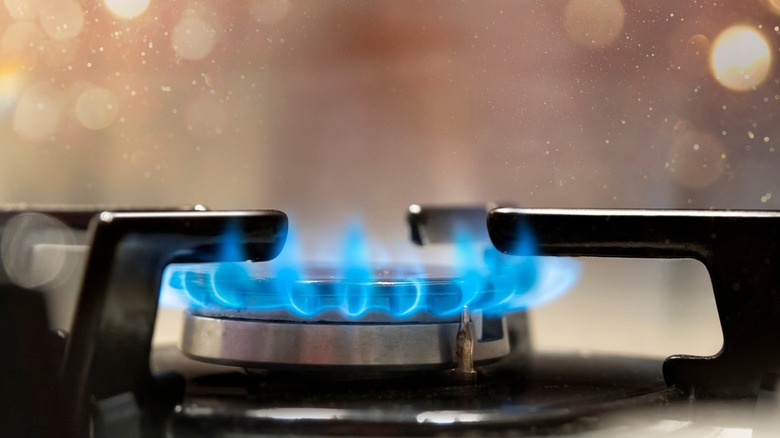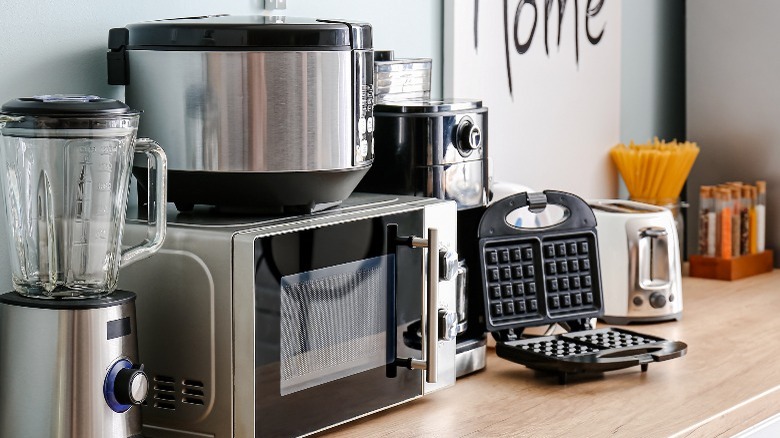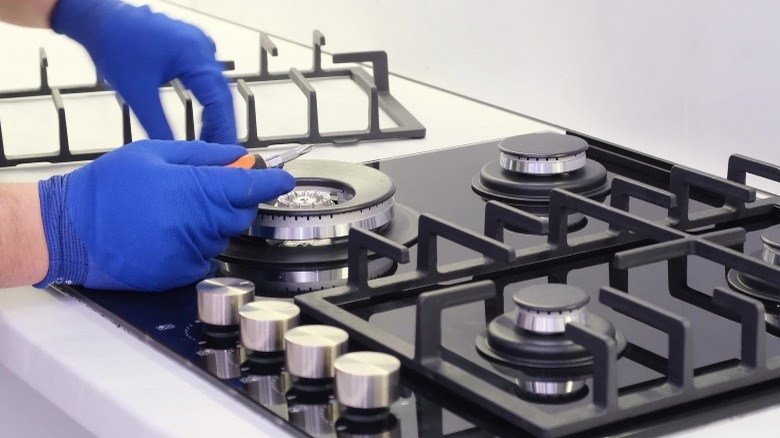Electric Vs. Gas: Which Is Better For Home Appliances?
Have you been spending hours browsing the web and trying to find the perfect appliances for your dream home? Or, perhaps you're tired of spending all your income paying off your electricity bills and are considering switching from electric to gas appliances.
While the idea of saving some cash on your energy bills makes switching from electric to gas appliances sound pretty appealing, making an impulsive decision just to save a few hundred dollar bills isn't always the wisest approach. Before you jump into a decision, it's worth taking a moment to consider factors like whether your house is set up for gas or electric appliances and if you can afford the up-front investment of either appliance.
Reliability is another key consideration — are gas appliances as dependable as their electric counterparts? Take a moment to weigh these factors against the prospect of saving money, ensuring that your decision aligns not only with your budget but also with your home's safety and efficiency.
What are Electric Appliances?
As the name suggests, electric appliances are devices that use electricity as their primary source of power. Electrical appliances can be classified into different categories like household, hand-held, kitchen, and more.
From the electrical oven you use to bake your turkey on Thanksgiving to the microwave you use to heat your leftovers, a lot of the appliances you use around in the kitchen rely on electricity. Similarly, the television you use to binge-watch your favorite Christmas movies and the lights that light up your room, all fall under the category of electrical appliances as well.
Finding energy-efficient appliances for your home that use electricity as their source of power is no challenge and can help you save quite a bit of money in the long run. However, if you live in an area with frequent power cuts and you're looking for reliable appliances, switching over to gas appliances may be a good idea since it'll not only allow you to continue working without disruptions but is also said to be cheaper than electric appliances.
What are Gas Appliances?
Gas appliances, of course, operate using natural gas or propane as their primary source of power. While natural gas has been used as an energy source since the mid-19th century to heat homes, a lot has changed since then. Similar to electrical appliances, you can find numerous types of gas appliances including cooking, heating, and even laundry.
While there may not be an exact gas-powered equivalent for every electrical appliance, many common household devices like electric stoves, ovens, and dryers have gas alternatives. On the other hand, gas-powered fridges and dishwashers aren't common, and finding a suitable device can be a challenge. Therefore, while it's not possible to completely switch to a gas-only household, investing in the alternatives that are presently available can be a good decision based on your situation.
Unfortunately, not all gas appliances will operate when the lights go out. A lot of gas appliances plug into an electrical power source and use natural gas as a power source to create heat, which means that they still depend on the power to operate. Typically, gas appliances like water heaters will continue to work regardless of whether power is out or not. However, the question of whether an electric heater will save you money or cost more is an entirely different debate.
Which one is safer?
Electric appliances typically have an edge when considering safety and will always be safer than gas appliances. However, by taking a few precautionary measures, you can safely use a gas appliance.
Firstly, ensure that your home, especially your kitchen is well-ventilated. This is because gas appliances like stoves, regardless of whether they're in use or idle, emit nitrogen oxides, and methane, among other harmful gases.
If installed incorrectly, gas appliances may produce dangerous amounts of carbon monoxide, which is an invisible and odorless toxic gas. According to the CPSC, CO concentrations above 200 ppm could even lead to death. Therefore, alongside a proper ventilation system, you should also invest in a carbon monoxide detector. Sure, it'll add to the cost but it is necessary as a carbon monoxide detector will immediately alert you if any strange build-up of CO is detected.
Since appliances that aren't maintained well or installed properly could cause gas leaks, or carbon monoxide poisoning, it's a good idea to get your gas appliances inspected regularly. We also recommend spending a few extra bucks getting your appliances installed by professionals instead of doing it yourself to minimize the risk of gas leaks and fires.
While electric appliances appear safer on the surface since there's no free gas flowing into your apartment, you need to be cautious with both electric and gas appliances. Although you won't have to worry about carbon monoxide poisoning or leaks with electrical appliances, they do carry a risk of fire and electrocution if not installed and maintained properly. Neither type of appliance can be deemed entirely safe unless you are extremely careful installing and using it.
Which one is more environmentally friendly?
While gas appliances may help you cut down on your bills, they are unfortunately not environmentally friendly. Gas appliances use natural gas as their source of power, which is made up of mostly methane, a greenhouse gas. When in use, natural gas releases unburned methane and carbon dioxide into the environment.
According to the UNEP (United Nations Electric Programme), this potent greenhouse gas has accounted for around 30% of global warming since pre-industrial times. Not only do gas appliances have adverse effects on the climate, but they also affect indoor quality and produce a range of dangerous emissions within your household.
According to a report by the IEA (International Journal of Epidemiology), it was concluded that gas cooking increases the risk of asthma in children and they found that children who live in a home with a gas stove have a 42% increased risk of experiencing symptoms of asthma. A 2022 report from Stanford scientists also concludes that gas stoves emit around 1.3% of the gas they use as unburned methane. Since electric appliances don't emit any harmful emissions, they can be considered more environmentally friendly than gas appliances, especially when powered by renewable energy.
Which one is cheaper and which one should you buy?
Once safety and health considerations have been thoroughly evaluated, cost often becomes the final deciding factor. Before you make a final decision, it's important to consider the initial and long-term cost of the appliance.
However, before we can conclude if appliances powered by electricity or natural gas are cheaper, numerous factors need to be taken into account. Gas appliances are cheaper to operate in the long run since the cost per unit of gas is generally lower compared to electricity in most regions. This can vary, and we recommend checking the current local utility rates for accurate comparisons.
Homes are often initially set up for either gas or electric systems, and transitioning between the two can incur significant expenses. Whether you are shifting from gas to electric or vice versa, the cost implications can involve purchasing brand-new appliances, rewiring, and installing the necessary infrastructure.
That said, the decision between gas and electric appliances boils down to user preferences. For instance, if power cuts are frequent in your region, considering a gas stove as a backup rather than a complete switch might be a practical option.





